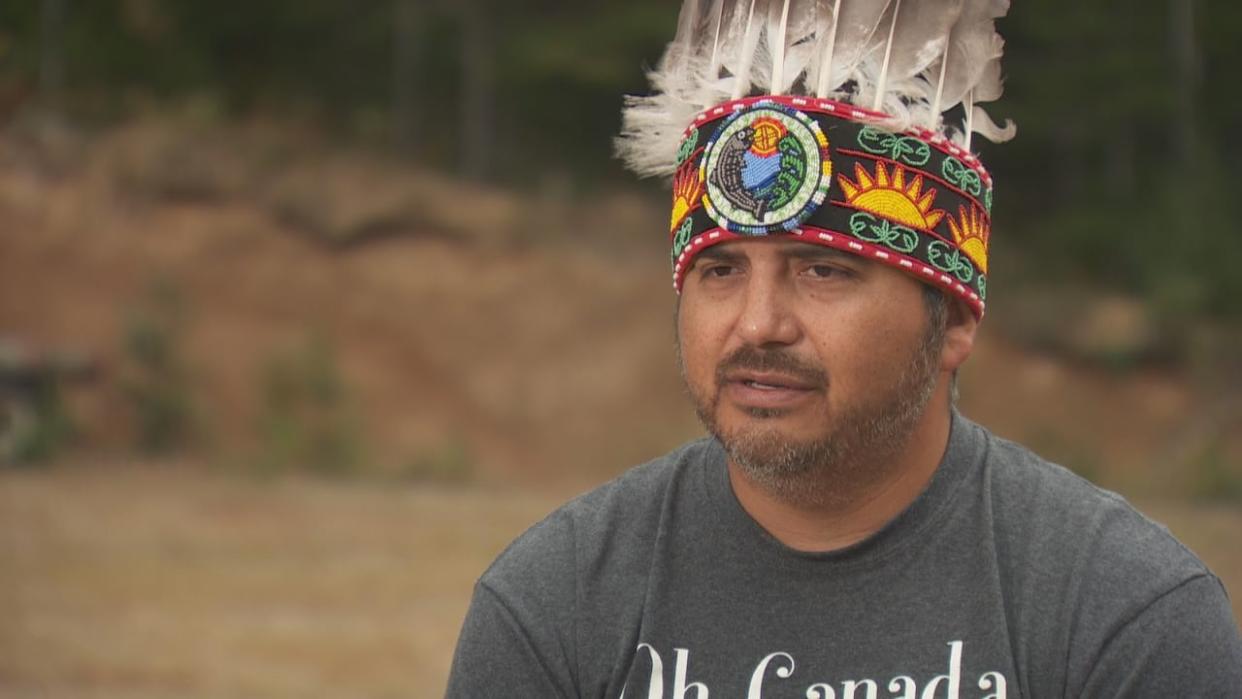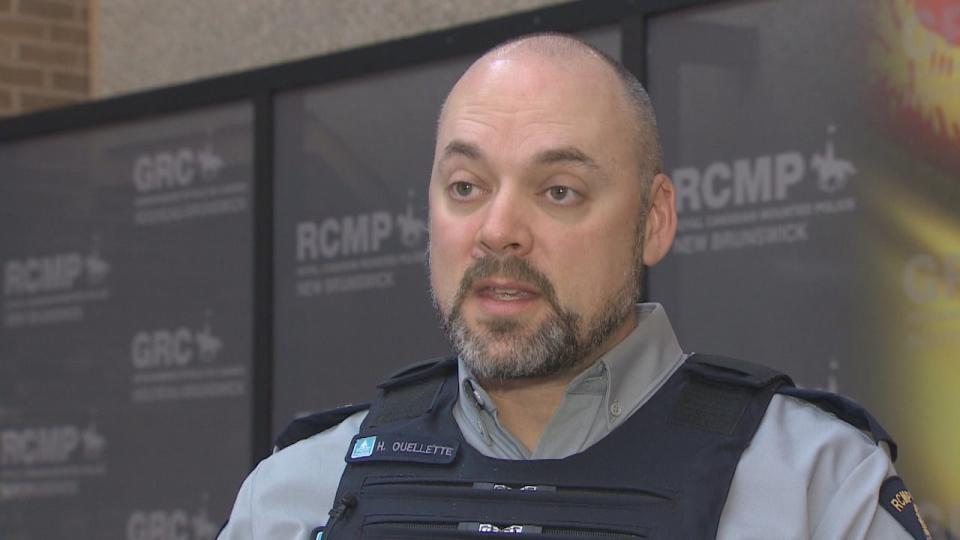'Everybody's scared,' Tobique chief says amid kidnapping case, growing drug problem

The chief of Neqotkuk First Nation says the recent kidnapping and assault of a woman in his community, also known as Tobique, is the latest in a string of crimes and highlights how dire the situation has become.
It's bad, said Ross Perley. "Everybody's scared."
"All the crime, and theft, and assault, and everything that goes on in our community — young deaths, suicides, it all stems from drugs." he said.
Methamphetamine, crack cocaine and non-prescription opioids are the most severe, according to Perley.
"It affects everything from child protection, to education at our school, to our health program and addictions program, to housing. Like, it impacts everything."
He contends organized crime, such as biker gangs, target his and other First Nation communities for drug trafficking, and alleges a lack of enforcement by the RCMP is to blame.
Perley's comments come after a 54-year-old woman from Florenceville-Bristol was allegedly kidnapped at gunpoint while visiting friends on Tobique on the evening of April 27, held against her will for two days, and assaulted.
Seven people are facing a combined total of 62 charges in connection with the incident, which the RCMP described as violent.
If we don't get a handle on drugs, it's just going to continue to snowball out of control. - Ross Perley, chief of Neqotkuk First Nation
According to Sgt. Danny Brideau, of the RCMP's West District community crime reduction unit, the accused used a noxious substance to incapacitate the victim and were trying to extort an unknown amount of money.
Tobique council is "very concerned that more stuff like this is going to happen," said Perley.
"If we don't get a handle on drugs, it's just going to continue to snowball out of control."
This isn't the first time the RCMP have been accused of failing to enforce rules on First Nations. Earlier this month, following a homicide in Oromocto First Nation, Perley and the five other Wolastoqey chiefs in New Brunswick called on the provincial and federal governments to ensure police officers enforce band-enacted bylaws banishing unwanted individuals from their communities.
Sheri Lynn Sabattis, 54, was found dead inside a home in Oromocto First Nation on April 27. Jared Smith, 38, of Burton, who is charged with second-degree murder in her death, was the subject of a banishment order.
"Jurisdictional buck-passing" between the federal and provincial governments has hurt efforts to control crime, the chiefs said.
Seeking more drug enforcement for years
Tobique council has asked the RCMP for years for more drug enforcement, "so it doesn't get to this level of violence and crime," according to Perley.
He wants to see them "kick in doors," seize drugs, charge people for trafficking, and enforce banishment orders against drug dealers.
He also wants officers in the community 24/7, as he contends they're supposed to be, under their community tripartite agreement.

New Brunswick RCMP spokesperson Cpl. Hans Ouellette said the RCMP has a 'strong relationship' with Chief Ross Perley and the community of Tobique, 'and have had success working with them to resolve public safety issues in the community.' (Pat Richard/CBC)
New Brunswick RCMP spokesperson Cpl. Hans Ouellette declined a request for an interview, and he did not respond directly, in an emailed statement, to Perley's allegation of a lack of drug enforcement.
"We frequently communicate with the Chief of Tobique and appreciate and respect his commitment to improving public safety in his community as well as the neighbouring Indigenous communities," wrote Ouellette.
"This communication was ongoing and in real time during the recent enforcement activity, and will continue as we work to find solutions to threats to public safety."
Liaison committee taking positive steps
Deborah Audibert, co-chair of the kikahan committee, which serves as a liaison between the community and RCMP, said she understands the chief's frustrations over the drug and policing problems.
She too wants people to feel like they "don't have to be scared of being in their own homes."
Audibert, who has served on the committee for 27 years and is also the nurse manager at the health centre, believes they're on the right track.
'We do need change'
The committee recently conducted a policing survey, asking community members about their experiences with the RCMP. The results from the roughly 140 respondents, from youth to elders, were discussed at this week's committee meeting.
"It wasn't really bad, but it wasn't particularly good, either," said Audibert. She declined to discuss specifics, saying the results haven't been released to the community yet.
"The basic thing was that we do need change."
The committee also plans to survey local and nearby RCMP officers to see if there's anything that could be included in a new tripartite agreement that would "help them do their job better," said Audibert.
In addition, the committee is in the process of hiring a security team of trained community members to work with the RCMP
"Those are all things positive, I think, that's going to help improve what is going on in the community."


